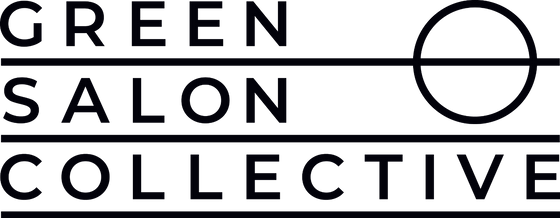After the success of our Industry Audit Report looking at the sustainability of salon towels, we’re undertaking another research report. This time, we’re looking at salon chemicals, both from a health and safety perspective and a salon waste one. We’ve now completed the first section, looking at salon health and safety, and want to share some of our key findings with you, our members!
Post-College Training
Due to the lack of regulation in the hairdressing industry, once stylists have completed their college training, they are not obliged to refresh any health and safety elements nor prove they are competent. NHBF offers some 'top up' health and safety classes—which we highly recommend--but these are nonessential and indeed require time and effort. This lack of updated training or mandatory refreshers may allow some stylists to lapse their knowledge of health and safety procedures, or not have as much confidence in the rules. In our survey, only 15% of respondents said that they felt that the correct H&S procedures happened 100% of the time in their businesses, with the majority (69.2%) choosing either 8 or 9. Overall, 73.1% were confident with their businesses H&S practices on the whole, and the other 26.9% were ‘somewhat’ confident.

Ingredients
Many chemicals used in traditional colour and bleach products have no alternative that are both better for human health and the planet and are equally effective. Luckily, many of the potential effects of those chemicals can be mitigated through good ventilation, correct PPE, limited skin exposure and by not putting chemicals down the drain, as they are all highly toxic to marine life. From our survey, 26.9% of respondents said that they had obtained a health issue or injury due to their occupation as a hairdresser, with the majority developing dermatitis on their hands. So make sure to wear gloves!

Salon Owner Responsibilities vs Freelancer
There seems to be some overlap between the health and safety responsibilities of salon owners and freelancers renting their chairs. Our research indicates that, to be fully covered, freelancers should take it upon themselves to have their own insurance and to adhere to COSHH standards and any other health and safety requirements.

Audits and Inspections
We have found it to be rare for local councils to check registered hair salons in order to ensure they have the legally required documentation and policies in place. Because this rarely happens, many hairdressing businesses may not be clear on what information they must regarding chemicals. For example, in our survey on hairdressing chemicals, 65.4% of respondents said ‘No’ when asked if they had a COSHH register which is worrying as it is a legal requirement. This suggests that chemicals in salons may be mismanaged.

Impacts of Chemicals on the Environment
In Waterways
Many hairdressing chemicals are hazardous to marine life and are extremely toxic. None of them should be washed down the drain or allowed to go into the water system. Whilst your waste water will go through water treatment, the chemicals are not all always filtered out, and can be flushed into waterways (like rivers and oceans) as wastewater. Even if they’re diluted by large bodies of water, the chemicals can accumulate and cause harm to marine life.
In Landfill
Per the UK Government’s guidelines, liquid waste should not go to landfill, as well as waste that would be explosive, corrosive, oxidising, flammable or highly flammable. Hazardous waste (i.e Chemicals) must be treated before going to landfill. If chemicals have been filtered out as a sludge, or have naturally formed a semi-solid sludge, this is allowed to go to landfill as it’s not a liquid anymore. However, some hazardous waste can be sent to landfill, if the waste companies get permission. There are several effects that landfills have on the planet, damaging human and planetary health.
We hope that this has provided some insight into the implications of hairdressing chemicals on both human health and the planet, and why it’s so important to make sure that everyone using chemicals in your salon is fully supported, trained and knows how to dispose chemicals responsibly.

